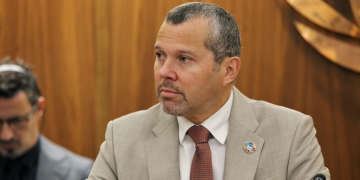United Nations Convention on the Law of the Sea – for maritime security and safety in the East Sea
 Delegates attending an international workshop in Ha Noi have underlined the role of the 1982 United Nations Convention on the Law of the Sea (UNCLOS) in curbing and managing threats to maritime security and safety in the East Sea.
Delegates attending an international workshop in Ha Noi have underlined the role of the 1982 United Nations Convention on the Law of the Sea (UNCLOS) in curbing and managing threats to maritime security and safety in the East Sea.
They shared the same view that disputes related to the East Sea were becoming more complicated as concerned parties had yet to find a common voice in efforts to settle differences.
Tensions had escalated over the East Sea, the location of important shipping routes and large fisheries resources, as countries involved in territorial disputes had increased military spending to modernise their force, speakers at the workshop noted.
They said UNCLOS could be applied to clarify sovereignty claims, thus restricting the seizure and construction of buildings in disputed areas and creating a legal basis for claims over territorial waters.
The Law of the Sea should be considered an effective tool to protect interests among relevant sides and the most important basis for discussions. The relevant parties needed to strictly implement the UNCLOS in internal and external affairs related to the East Sea, the delegates said.
Delegates and scholars at the event proposed a number of measures to promote co-operation in the East Sea based on the experiences of many countries world-wide in addressing sea disputes.
The most worthy of note was initiatives on building a managerial system of fisheries at a regional level and effectively controlling marine pollution, setting up a bilateral or multilateral network of marine reserves as a solution to replace the current unilateral prohibition of fishing.
The scholars said that in order to settle the East Sea disputes peacefully, relevant parties should be persistent in negotiations, increase dialogues in the spirit of co-operation and respect for international laws, refrain from violations and create transparency for sovereignty claims over seas and islands.
The establishment of the Code of Conduct of Parties in the East Sea would help to build trust among countries to create a peaceful and stable environment and encourage parties to co-operate in management and exploitation of natural resources in the East Sea peacefully.
The third international workshop on the East Sea, which was held on Friday and Saturday in the capital city, drew the participation of more than 200 foreign and domestic delegates, who heard 31 speeches and more than 70 opinions focusing on topics relating to the East Sea.
The seminar is seen as an effort to promote international co-operation in matters regarding the East Sea.
Source: VNS


























































